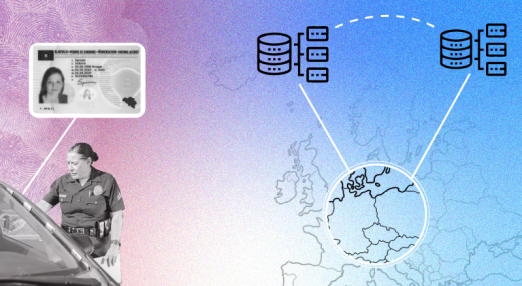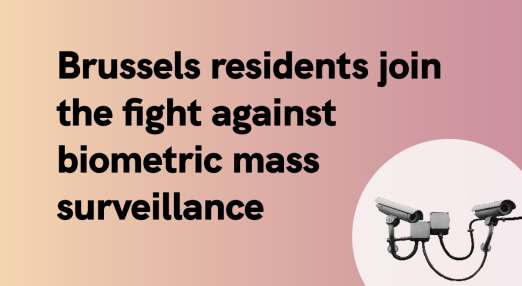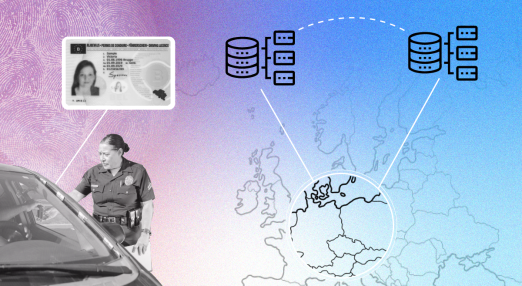facial recognition
Filter by...
-

OPEN LETTER: The European Commission must act now to defend fundamental rights in Hungary
With Budapest Pride set to take place on June 28, 2025, EDRi and 46 organisation are urging the European Commission to defend fundamental rights in Hungary so that Pride organisers and participants can safely exercise their right to peaceful assembly and freedom of expression.
Read more
-

Hungary’s new biometric surveillance laws violate the AI Act
This blog post is a legal analysis of new legislation in Hungary that uses facial recognition technology in a manner that violates the EU Artificial Intelligence Act. Such use of this technology risks discouraging people from exercising their fundamental rights undermining their trust in democracy.
Read more
-

Civil society to European Commission: Act now to defend fundamental rights from Hungary’s Pride ban and the use of facial recognition against protesters
EDRi, along with a broad coalition of civil society organisations, demands urgent action from the European Commission on Hungary’s new law banning Pride marches and permitting the use of live facial recognition technology targeting protesters.
Read more
-

Statement: EU takes modest step as AI law comes into effect
The EU Artificial Intelligence (AI) Act will finally come into force on August 1, 2024. While it's disappointing that the final law did not put people and their rights at the centre, it still contains some silver linings.
Read more
-

EU’s AI Act fails to set gold standard for human rights
A round-up of how the EU Artificial Intelligence (AI) Act fares against the collective demands of a broad civil society coalition that advocated for prioritising the protection of fundamental human rights in the law.
Read more
-

Automated data exchange in Prüm II: The EU’s securitisation mindset keeps encroaching on our fundamental rights
The agreement on automated data exchange for police cooperation, known as ‘Prüm II aligns with a broader EU trend of laws prioritising national security over human rights. The final text of this regulation has insufficient fundamental rights safeguards and could even encourage more member states to adopt facial recognition technology. The EU Parliament must reject the current Prüm II Regulation in the upcoming plenary vote.
Read more
-

EU AI Act: Deal reached, but too soon to celebrate
On 8 December 2023, following over 36 hours of negotiations, EU lawmakers finally cinched a deal on the Artificial Intelligence Act. However, whilst some fundamental rights protections have been won, the overall Act has not lived up to its potential to put people and their rights front and center.
Read more
-

Czech police use facial recognition system, IuRe finds out details
EDRi member Iuridicum Remedium have details on the Czech police’s illegal use of a facial recognition system. The country’s data protection authorities were not consulted in advance on the system, which is being used for biometric identification
Read more
-

Protect My Face: Brussels residents join the fight against biometric mass surveillance
The newly-launched Protect My Face campaign gives residents of the Brussels region of Belgium the opportunity to oppose mass facial recognition. EDRi applauds this initiative which demands that the Brussels Parliament ban these intrusive and discriminatory practices.
Read more
-

New poll exposes public fears over the use of AI by governments in national security
EDRi’s affiliate European Center for Not-for-Profit Law (ECNL) commissioned a survey in 12 EU countries, where a representative sample of the public was asked about their opinion on the use of AI by governments. The poll has exposed public fears and shown stark differences with some of the positions taken by EU countries. Check out the results.
Read more
-

Warnings against arbitrariness and mass surveillance in EURODAC
Four Members of the European Parliament in charge of leading the negotiations sent additional questions on data protection related to the EURODAC proposal to the EDPS. This comes as a result of the concerns of fundamental rights violations raised by several organisations protecting the rights of people on the move, children and digital rights, including EDRi, in an open letter. Read a summary of the EDPS' answers.
Read more
-

Position Paper: New EU law amplifies risks of state over-reach and mass surveillance
The EDRi network published its position paper on the proposed Regulation on automated data exchange for police cooperation (“Prüm II”). The European Commission’s Prüm II proposal fails to put in place vital safeguards designed to protect all of us from state overreach and authoritarian mass surveillance practices. In the worst case scenario, we may no longer be able to walk freely on our streets as the new law would treat large parts of the population as a criminal before proven otherwise.
Read more
